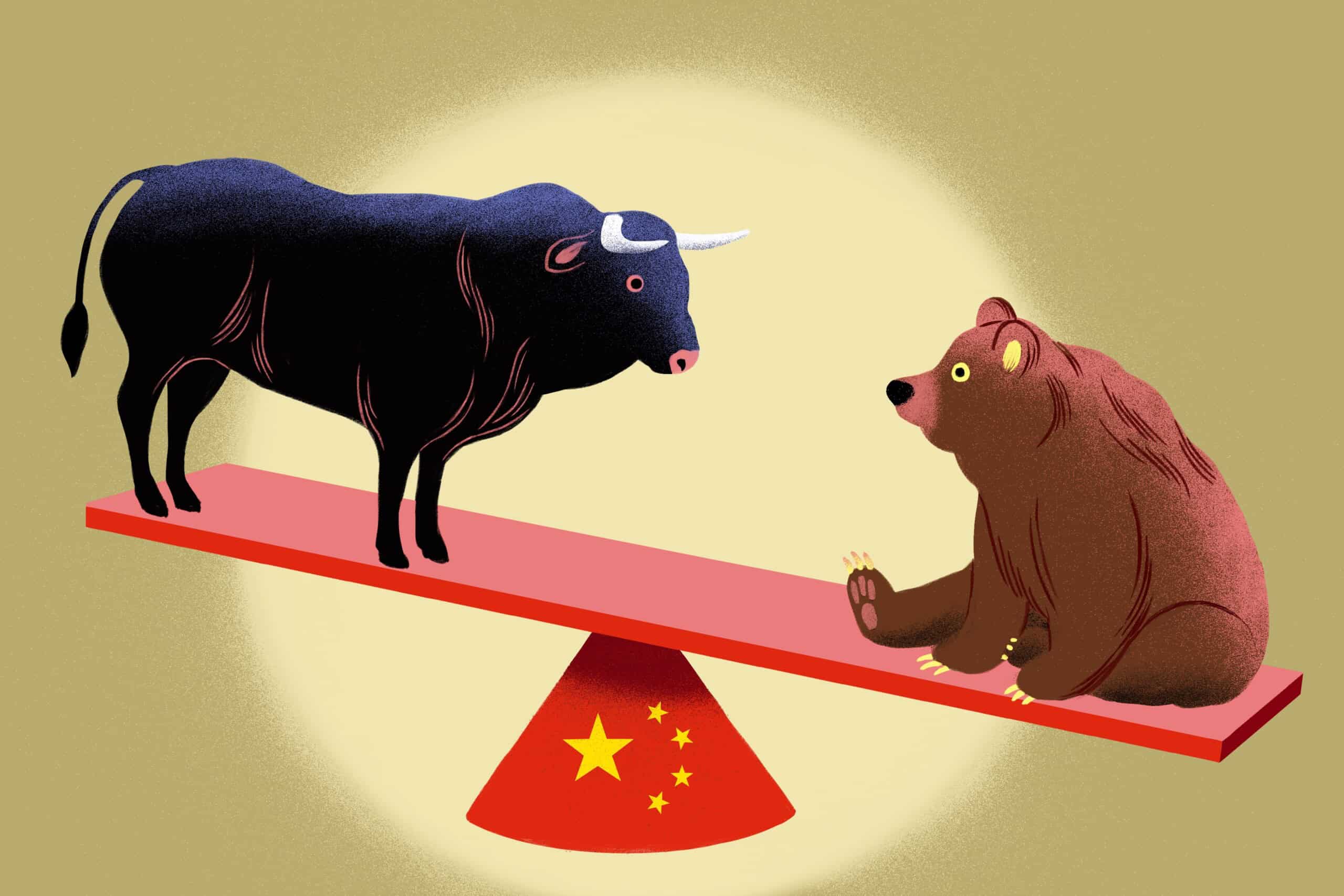
The Big Lie has become bigger. The false claim of a rigged, stolen 2020 U.S. presidential election embraced by Donald Trump and his cult has brought about the end of fact-based accountability. This is having profound and lasting implications on a deeply troubled Sino-American relationship.
Then Chairman of the House Select Committee on the CCP, Mike Gallagher, delivers opening remarks at a hearing on “The CCP Cyber Threat to the American Homeland and National Security”, January 31, 2024. Credit: Select Committee
Amid the toxic atmospherics of the Big Lie, Sinophobia, or irrational fears of China,
have now taken on a life of their own. The anti-China mindset has intensified to a state of near
paranoia in the United States. Examples include any one of a number of alleged threats:
Chinese-made electric vehicles (EVs) and dock-loading cranes; the vulnerability of U.S.
infrastructure to a so-called Volt Typhoon hacking network; national security concerns over the
feared back door of Huawei’s 5G network; and the potential of TikTok to assault the character
and privacy of innocent American teenagers.
I have argued that these fears originate in false narratives aligned with America’s anti-China political agenda. Such narratives are not pulled from thin air. They reflect projections from the distorted facts of what academic psychologists call a “narrative identity” which “reconstructs the autobiographical past.” In the U.S., that past unfortunately reflects an ugly strain of identity politics traceable to a long history of racial and ethnic prejudice. To be sure, as I also detail in my book, Accidental Conflict, China is equally guilty of embracing and promoting false narratives about America to suit its own purposes.
In examining the corrosive effect of false narratives on the China debate in the U.S., I have stressed the important distinction between the potential to inflict harm based on circumstantial evidence and conjecture, and the intent to do so based on the “smoking gun” of hard evidence. In the era of the Big Lie, the recently exaggerated fears of Sinophobia largely fall in the former category.

For example, U.S. Secretary of Commerce Gina Raimondo asked Americans to imagine what might happen if Chinese EVs were turned into destructive weapons on U.S. highways. FBI Director Christopher Wray warned of an attack on critical infrastructure if China decides to activate its embedded malware. Fears that China will invade Taiwan in 2027 reflect a dated hunch by retired Admiral Phil Davidson, former head of the U.S. Indo-Pacific Command. The key words — imagine, if, and hunch — speak volumes to the dangers of acting on the circumstantial evidence of conjecture.
But that hasn’t stopped the Sinophobic fear mongering of U.S. politicians. Recent hearings of the House Select Committee on the Strategic Competition Between the United States and the Chinese Communist Party are reminiscent of the “red-baiting” used by the House Un-American Activities Committee during the 1950s to target alleged Communist sympathizers. The House’s penchant for conjecture also spurred recent passage of 25 anti-China bills — a rare flurry of legislative activity in late September now known as “China Week.”
The Big Lie has ushered in a climate where facts are no longer a prerequisite for political discourse and policymaking. That jeopardizes the future of all Americans.
The Big Lie has precipitated an even more troubling outcome. Trump’s disregard for the truth has undermined trust in the basic institutions that undergird the confidence and security of the American system. This has created an increasingly toxic environment where the irrational fears of Sinophobia have flourished well into the Biden-Harris era. Fact-based false narratives have now become outright lies.
Consider recent press reports of the espionage indictment of five Chinese graduates from the University of Michigan for taking photos near a U.S. National Guard training exercise that involved Taiwanese military personnel. The reports turned out to be wildly exaggerated: the five men were more than 50 miles from a military base and were charged not with espionage but with lying to the police.

This largely fictitious news item has Sinophobia written all over it. It resulted in a Republican state senator in Michigan attempting to scrap subsidies for a new $2.4 billion battery-component plant to be built by a U.S. subsidiary of Gotion High-Tech, a Chinese company. Never mind that Gotion’s largest shareholder is Volkswagen, not the Communist Party of China, as U.S. politicians allege. The company has become an election issue in swing-state Michigan.
The corrosive impacts of the Big Lie also show up in other aspects of Sinophobia. Last year, FBI Director Wray, a Trump acolyte with well-established anti-China credentials, sounded a very public alarm that “China already has a bigger hacking program than every other major nation combined” — an allegation that has become deeply ingrained in the anti-China culture of Washington.

Maybe not. According to a new World Cybercrime Index compiled by researchers at Oxford University, the world’s top cybercrime threats originate from, in descending order, Russia, Ukraine, China, the U.S., Nigeria, Romania, North Korea, and the United Kingdom. In fact, China only narrowly beat out the U.S. for third place.
I am not arguing that China or any other foreign actor should be ignored as a potential threat to American cybersecurity. Rather, senior U.S. officials must be more transparent about the global scope of cyber-hacking — and own up to America’s role in propagating it.


Then FBI Deputy Director David Bowdich announces that four Chinese military-backed hackers were indicted in connection with the 2017 cyberattack against Equifax, which led to the “largest known theft of personally identifiable information ever carried out by state-sponsored actors”, February 10, 2020. Source: FBI
As lies replace the fact-based fragments of false narratives, Sinophobia not only destabilizes the world’s most important bilateral relationship, but it also results in serious policy blunders. This has a long history that predates the rise of Donald Trump. Just as the U.S. government once falsely blamed Japan for America’s trade deficit, now it has turned its ire on China, imposing high (and possibly even higher) tariffs on Chinese imports. Never mind that bilateral action cannot eliminate a multilateral trade deficit stemming from a domestic-savings shortfall.
In the era of the Big Lie, unintended consequences are likely to be even more perverse and self-destructive. The U.S. is effectively banning Chinese-made EVs precisely when it needs cost-efficient, high-quality green technologies to address climate change. As congressional efforts of
China Week show, exaggerated fears of China’s cyber-hacking are now dominating the legislative agenda. And the U.S. Treasury has just issued a “final rule” to monitor and restrict
outbound foreign direct investment in Chinese semiconductors, quantum computing, and artificial intelligence — actions that could well spark Huawei-like competitive responses that could intensify China’s push for self-reliance in these critical areas.
Thanks to the Big Lie, facts are in short supply as the U.S. approaches its most consequential presidential election in modern history. This raises a deeper question: What comes next? The Big Lie has ushered in a climate where facts are no longer a prerequisite for political discourse and policymaking. That jeopardizes the future of all Americans. One can only hope voters bear this in mind when casting their ballots on November 5.
Note: An earlier version of this article was published by Project Syndicate.

Stephen Roach, senior fellow of the Paul Tsai China Center of Yale Law School, is the former chairman of Morgan Stanley Asia and author of Accidental Conflict: America, China, and the Clash of False Narratives (Yale University Press, 2022).




